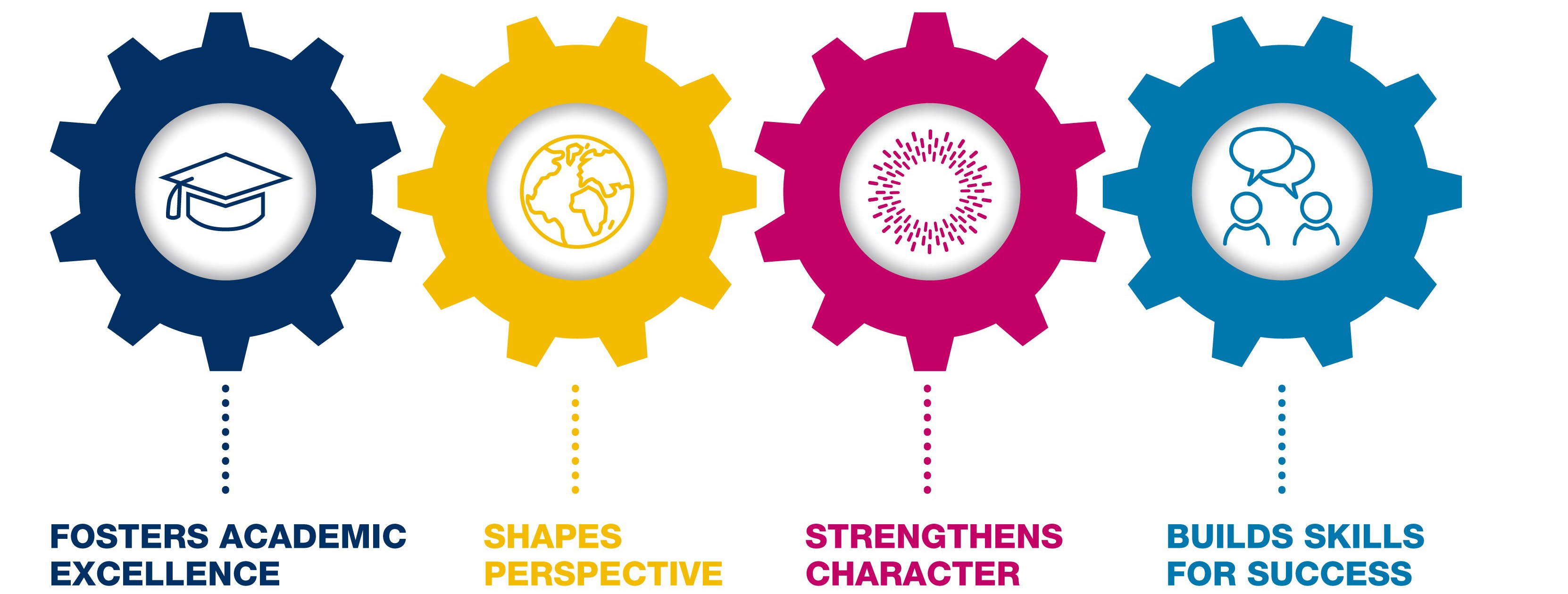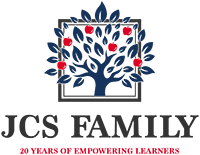Educational Philosophy
To develop into educated and contributing 21st century citizens, students must have the skills, knowledge and expertise needed to succeed in work and life based on the blend of content knowledge, specific skills, expertise and literacies.
Educational Philosophy
JCS identifies an educated person in the twenty-first century to mean a person who is literate, can understand and function sufficiently in the world around him or her, has an overview of the history of mankind, has an understanding of the political process, has an ability to solve mathematical problems and to think scientifically, and has the values and skills necessary to enhance the world in which he or she lives. This person is one who has realized his or her own unique and diverse educational interests, talents, or abilities; is intrinsically motivated to learn; and is a competent lifelong learner.
To develop into these educated and contributing 21st century citizens, students must have the skills, knowledge and expertise needed to succeed in work and life based on the blend of content knowledge, specific skills, expertise and literacies. Within the context of core academic subject knowledge (English, reading or language arts, mathematics, science, world languages, arts, economics, geography, history, and government and civics) and understanding, students must be:
- Prepared for increasingly complex life and work environments in the 21st century with learning and innovation skills that include: critical thinking and problem solving, communication and innovations, creativity and innovation
- Able to exhibit a range of functional and critical thinking skills in the technology and media-driven environment of the 21st century such as: information literacy, media literacy, information, communication, and technology literacy
- Able to navigate complex life and work environments in the globally competitive information age with life and career skills that include: flexibility and adaptability, initiative and self-direction, social and cross-cultural skills, productivity and accountability, leadership, character and responsibility
JCS parents, students and staff believe that the best learning occurs when:
- Curriculum and educational delivery methods are tailored for each individual student taking into account such things as learning styles, environment, interests, prior knowledge, skill level, pacing, and level of parental support.
- Personalized, one-to-one teaching through student-tailored curriculum is the primary arrangement with a variety of support, small group instruction, and enrichment opportunities provided as needed or as additional educational resource options
- As appropriate, the learning plan may include small group instruction or online instruction; independent, interest-generated learning; collaborative projects; the appropriate use of technology; field trips; participation in programs and competitions tied to standards; and integrated, cross-curricular projects
- Real life, context-based learning is emphasized
- Parents, teachers, administrators, students and the community work together as a team
- Professional (staff and parent/parent-teacher) development is present
- Time for teacher mentoring of parents and students is allotted
- A positive, safe, and educationally conducive environment exists
- Schooling is viewed as one aspect of an education
- Students are held to high expectations and are expected and encouraged to learn
- The entire community serves as the school campus
Learning at JCS

JCS and the Common Core State Standards
JCS aligns curriculum, instruction, and evaluation with the Common Core State Standards to enable student success. The standards serve as a guide in developing school goals and in making decisions regarding expenditures of resources, allotment of budget, staff development, program priorities, and policy decisions. Objectives of JCS include:
- Students perform and achieve as well or better than students in traditional public schools
- Students achieve competency in basic academic skills, meet Common Core State Standards, and progress satisfactorily on the Student Learning Outcomes (SLO)
- Students learn to recognize and use their strongest skills and abilities and to leverage skills to improve areas of weakness
- Students are intrinsically motivated and attain confidence and competency to work independently via interesting and meaningful learning opportunities and community-based activities that stimulate the interests of each individual student
- Students are active participants in their personalized learning plan with the support of staff and parents
- Students are provided quality alternative educational options for optimum student learning
